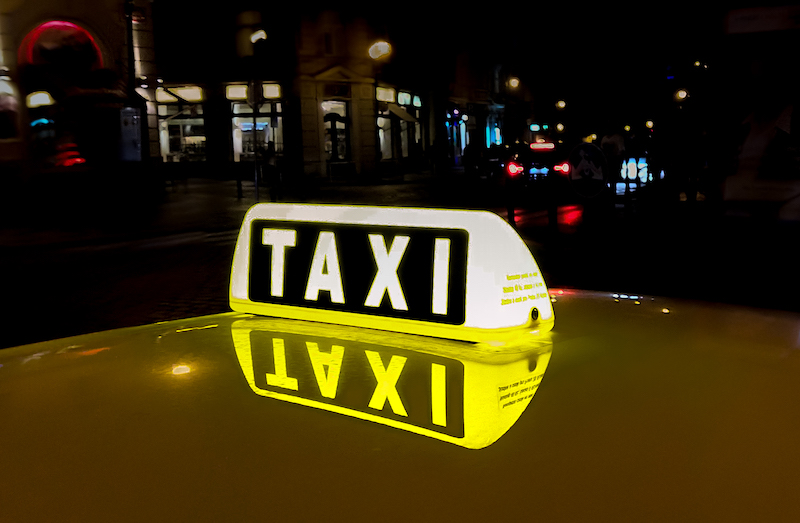By Aznet T. //
When you’re in a taxi, do you make conversation? Lately I’ve been steering topics toward mental health.
I might talk about how a mental health social agency trained and matched me to a job: “They helped me for free! I hadn’t worked for five years. They taught me and gave me chances.” Usually the driver says, “Actually, I cannot tell that you have a mental illness.”
I might explain I’m on medication for life: “This year is great as I have been mostly well. I know what to do when symptoms arise. I’ve gotten better at preventing relapses”.
I might share my joy over my improvement: “I’ve finally crossed the river! It’s a river of recovery, and the other side is where I can reintegrate into society with confidence. While crossing, I was tugged here and there by strong currents; I had to dig in my heels to stay upright. Sometimes, I was mired deep in mud swallowing me inch by inch. Often I forgot what I was trying to do because I was in survival mode.
I get plentiful advice with good intent from drivers. Some are curious and ask questions about my struggles so I try to describe them.
In the past, I faked being fine. I was chain-smoking, drinking, taking party drugs, self-injuring, not sleeping, stealing medication, trying to overdose. Some may think these were because of a character flaw, but I know my behaviour was a response to trauma and my disorder.
I was in denial before I accepted my diagnosis, bipolar disorder. It disrupted my life and I couldn’t function. I eventually complied with the psychiatrist’s instructions regarding medication and I learned about mental health. I knew I had to grab the reigns of this malady and be proactive in my recovery. Even so, I was still beset by depression and mania.
Despair, so thick that I couldn’t breathe. The weight on my chest, the stone in my throat, as real and debilitating as physical pain. Then the pendulum would swing, and this hyper version of me would multitask and be sleepless for days. My energy would surge; I’d be on fire, delusional and exhausted.
You see, my brain receives and sends mixed signals. How I react can be out of proportion to the present scenario. My mood is affected by my emotions from my perceived thoughts, which could be inaccurate. Without medication, my brain is playing, “Broken Telephone.”
Recovery is not a straight path, even with medical support. It wasn’t easy finding genuine help.
I got diagnosed by a doctor who didn’t even look at me, he just ticked answers on a questionnaire. Once, I felt so cornered by a doctor that I had to switch clinics. These were rare occurrences. Another time, I was institutionalised overseas. I was handcuffed, tied up, stripped-searched and humiliated. Not all therapy is holistic.
My recent therapy however, was fruitful and positive. My rehab counselor asked if I was keen to volunteer for weekly counselling with a psychology intern. The psychologist got me to question and check my thoughts at my most down and high moments. I learned to stabilise my mood and address my thoughts with mindfulness and compassion.
I consider this a breakthrough because I was able to distinguish depression/suicidal thoughts as irrational and not mine. I had to confront the lie in my brain that I subscribed to for years, that this world didn’t need me. Then I heard my voice, and my heart. One day I said, “I want a second chance at life, at love, at everything. I want to live well.” With that declaration, I banished my suicidal thoughts.
In these 15 years since diagnosis, I’ve been warded twice. I messed up jobs, lost friends, credibility, self-esteem, money and I hurt my family. My physical health deteriorated with my mental health. I lost years and pockets of memory. I pulled dangerous stunts, have had hallucinations and panic attacks in public. I succumbed to the stigma that I was a helpless patient, something evil, a manipulator, that I caused my condition, and that I did not deserve joy.
Now, I have an army of supporters, a medical team that cares for me; and supportive family, friends and peers with similar lived experiences. I am remembering who I am and learning to love life again.
Our community has empathy. I’ve had wonderful, diverse conversations with drivers as we exchange stories. I find we’re linked and not separate. We just have to open up. One day, we’ll eradicate stigma and ignorance, and people won’t be afraid to ask for help when they need it.
Aznet is a volunteer writer with The Tapestry Project SG. She lives blissfully with 2 senior cats and 2 budgies. Her usual narrative for recovery includes a lot of puns, memes about mental health, and all out laughter.
To read more of our Tapestry stories, click here.
Image credit: Pexels

